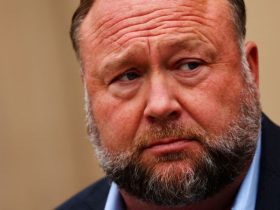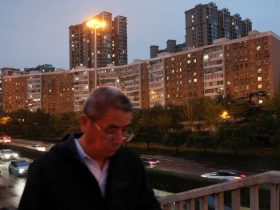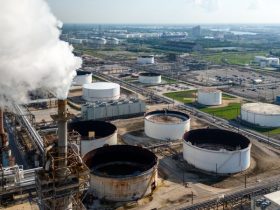Tesla will shut its factory near Berlin to all employees Friday when crowds are expected to gather outside its gates to protest against a planned expansion.
A stoppage of the plant’s production lines this Friday was announced back in January, CNN affiliate RTL reported late Tuesday, quoting a Tesla (TSLA) spokesperson. But with the protests “in mind,” the electric vehicle maker has decided that all other workers at the factory should also stay at home, RTL said.
The assembly lines normally run Monday through Friday. Thursday is a public holiday in Germany, making Friday a so-called “bridge day” between the holiday and the weekend.
André Thierig, a senior manufacturing director at the Tesla factory, confirmed in a post on X Tuesday that there would be a “one-day planned production shutdown” Friday.
People opposed to Elon Musk’s plans to more than double the production capacity of Tesla’s only factory in Europe are planning four days of protests, starting Wednesday.
Disrupt, a coalition of self-declared anti-capitalist protest groups, argues that the expansion would require clearing swathes of the surrounding forest and would further strain local water supply.
Production at the plant will stop after the late shift Wednesday and re-start on the nightshift Sunday, German newspaper Handelsblatt reported, citing a company email sent to employees.
“Without the explicit instruction and authority of your manager, access to the site or factory will not be possible,” the Tesla email reportedly said.
Police in the German state of Brandenburg, where the plant is located, said Wednesday that they had prepared for “extensive” operations, noting that they would be supported by federal police and several other state police forces.
“Disruptive protests as well as criminal acts typical of this kind of gathering cannot be ruled out,” they said in a statement. “Consequently, the police are prepared for both a peaceful and non-peaceful outcome. If crimes are committed, the police will intervene resolutely.”
The huge plant — located about 30 kilometers (18 miles) southeast of the German capital — is currently capable of producing more than 375,000 electric cars a year.
In February, local residents voted against a motion to clear enough forest for Tesla to expand the site, leaving it to local authorities to decide how to proceed, according to Reuters.
Disrupt says on its website that “electric cars are not the solution” to phase out carbon-emitting combustion engines.
“When producing an electric car, the consumption of resources creates an enormous ecological footprint and thus further drives the global climate catastrophe,” the group says, pointing to the environmental damage caused by the mining of lithium, a key metal in EV batteries.
Ole Becker, a spokesperson for Disrupt’s anti-Tesla activities, said the protests would have “many phases.” That includes a demonstration in front of the factory, as well as lectures and panel discussions close to the site.
While it was likely “we will see some civil disobedience” from protesters, this would happen spontaneously and was not part of Disrupt’s plans, he told CNN.
No buses or trains will run to and from the factory between Thursday and Sunday because of the anticipated protests, Handelsblatt cited Tesla’s email as saying.
Tesla has not responded to a CNN request for comment.
It is the second time in as many months that protesters have disrupted operations at the plant.
In early March, a group of far-left activists claimed responsibility for an arson attack on a high-voltage electricity pylon delivering power to the factory. The incident forced Tesla to close the facility for a week.
The activists, calling themselves the “Volcano Group,” wrote in a letter published on the alternative German media website Kontrapolis that they had “sabotaged” the plant because it “consumes Earth, resources, people, labor and spits out 6,000 SUVs, killer cars and monster trucks per week.”
Mark Thompson, Olesya Dmitracova and Stephanie Halasz contributed reporting.
Read the full article here













Leave a Reply